In Hong Kong, we are no strangers to the humane and practical tradition of the “mentor-apprentice” relationship: when young recruits first join the industry, their seniors act as “sifu” (mentor in Cantonese), teaching the apprentice their skills, knowledge of the trade, and interpersonal skills and attitude towards others. The bonds between mentors and apprentices are invaluable because of the time they spend together and the depth of their understanding. At Hactl, we have a comprehensive training programme for our staff, but we also value the close and affectionate mentorship between new and existing colleagues, who support each other at work and beyond. We talked to three pairs of mentors and apprentices at Hactl — Kwan Kwok-ming (Kwan) and Chan Hing-keung (Hebe), Pang Kwok-fai (Fai) and Leung Wai-kit (Kit), and Lee Wing-keung (Fei) and Lam Pui-wai (Wai), to find out how mentors train and inspire their apprentices to become stalwarts of the terminal.
Kwan Kwok-ming (Kwan), Engineering and Facilities Services – Engineer
Chan Hing-keung (Hebe), Engineering and Facilities Services – Technical Supervisor
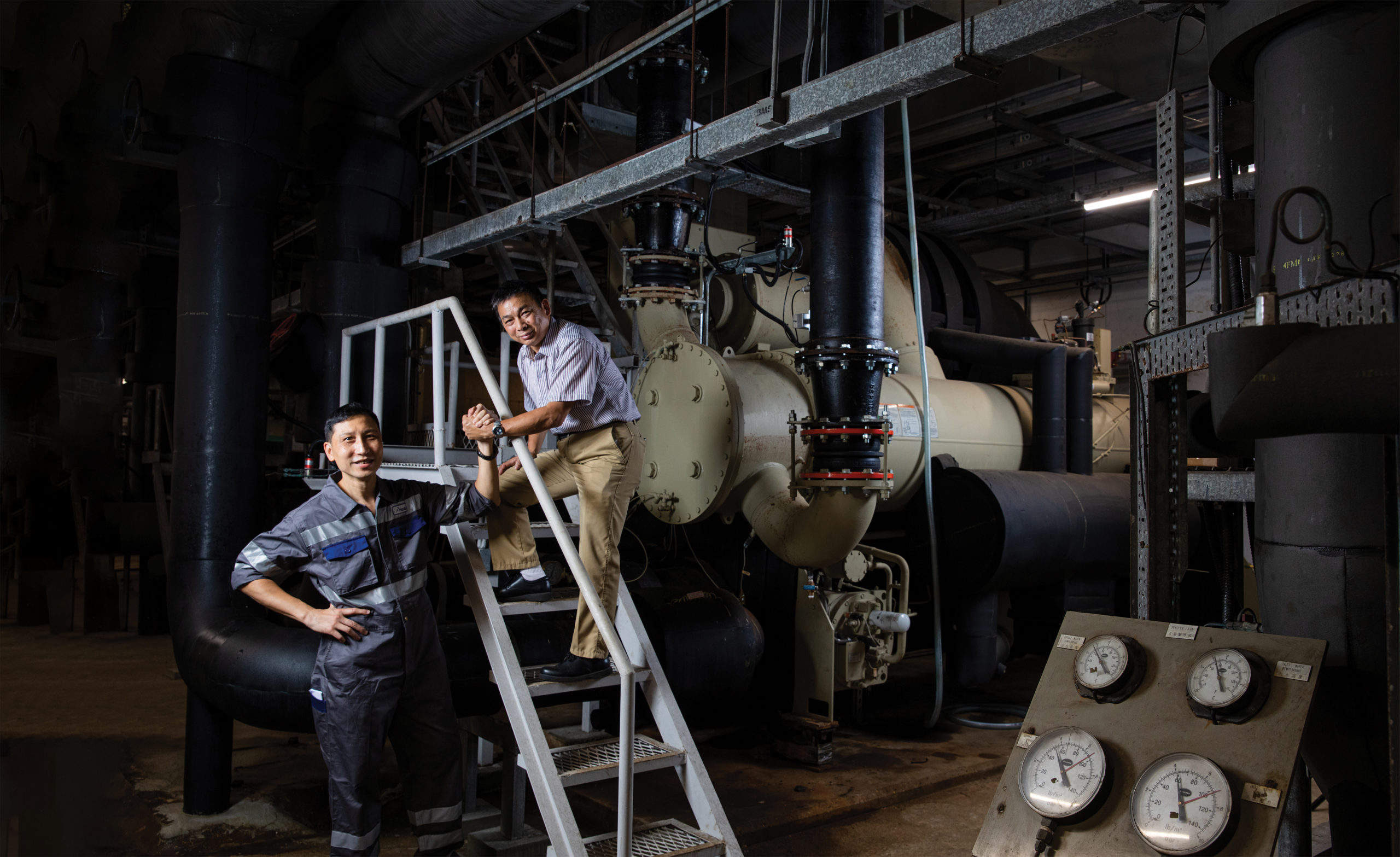
Thoughts and deeds
Kwan and Hebe both work in the Engineering and Facilities Services Department, but have different training backgrounds and working styles. Sifu Kwan majored in Mechanical Engineering at The Hong Kong Polytechnic University, majoring on theory and data; Hebe meanwhile was trained at a technical institute, and has a more practical, hands-on nature. “Every time the company conducts a major electrical inspection, Kwan considers and includes every minute detail in the inspection plan, from the transformer room to small electrical appliances on individual desks. In the past, we thought that Kwan was making a mountain out of a molehill,” Hebe laughs.
However, after working with Kwan for some time, Hebe realised this cautious attitude is an essential quality for an engineering professional: “For example, he would explain in detail how electricity and water supply failures could impact the terminal, as well as his considerations and thought process behind every engineering project. Gradually, I realised this attention to detail is indeed an aspect of professionalism.” In 2006, Hebe was promoted from Junior Engineer 1 to Technical Supervisor, and became Kwan’s right-hand man.
One of the core tasks of Hactl’s Engineering and Facilities Services Department is handling “wind, fire, water and electricity” (in other words, the air-conditioning, fire-fighting, water supply, and electricity systems) of the cargo terminal. However, Hebe was originally trained as a specialist in air-conditioning work, and had little knowledge of the other three areas. Thanks to Kwan’s ready advice, Hebe has become well-rounded in these areas too. “The older generation is sometimes reluctant to share all their knowledge and skills because they are worried that they will one day be replaced by their juniors,” says Hebe. But Kwan is not stinting with his experience and knowledge. “Sifu is always willing to answer any question. The only thing he worries about is that you’re not willing to ask and learn,” he laughs.
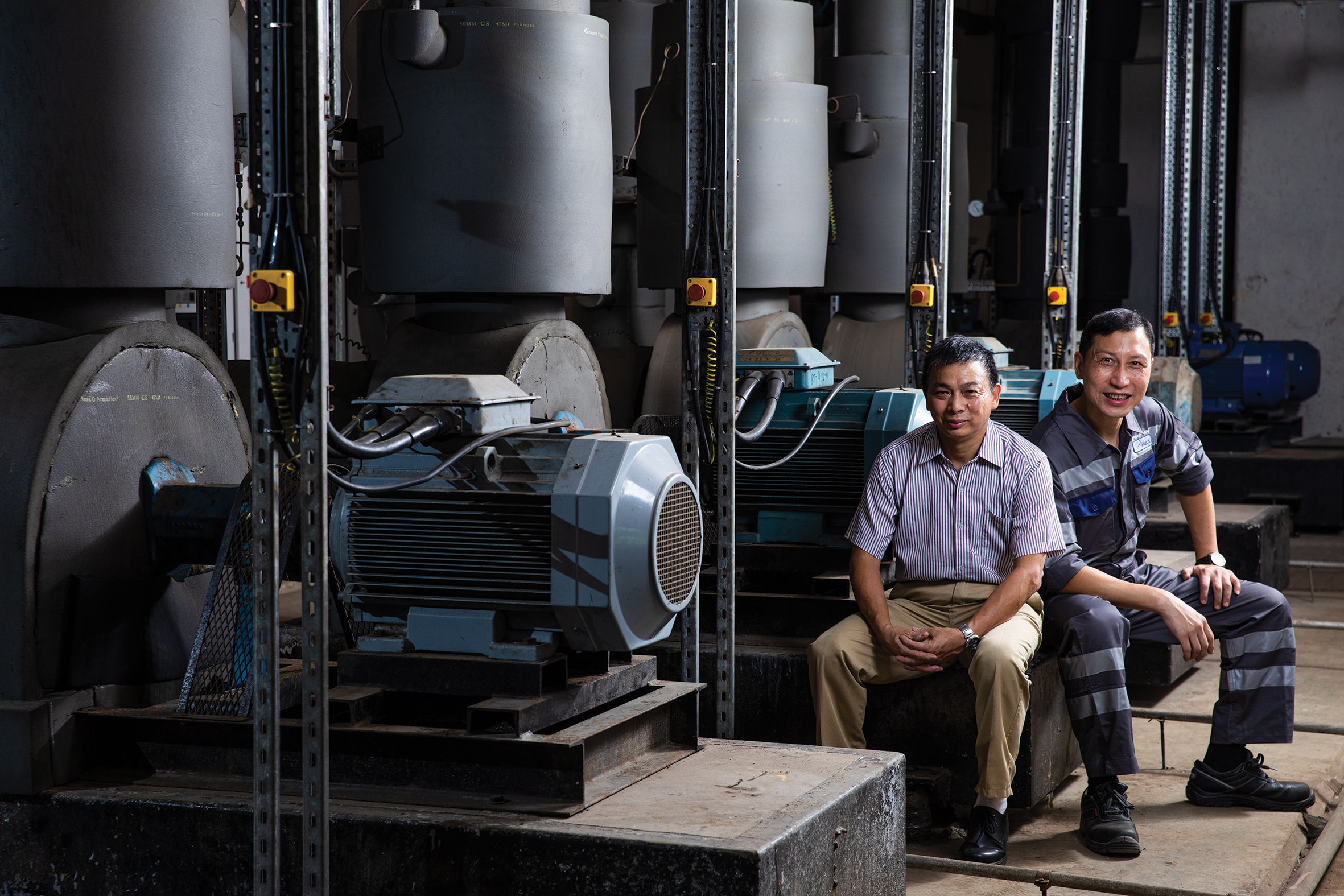
“Kwan is not stinting with his experience and knowledge. “Sifu is always willing to answer any question. The only thing he worries about is that you’re not willing to ask and learn.”
All-round engineer
The “all-round” engineer philosophy that Kwan believes in, and the way he always leads by example, have greatly influenced Hebe’s career development. He continues: “The older generation of engineers generally specialise in only one of the areas of ‘wind, fire, water and electricity’. So a maintenance task that could have been done by one person in half an hour often required the collaboration of engineers from other specialities, and ended up taking half a day. However, sifu has stressed repeatedly over the years that engineering problems are interrelated, so the younger generation should not be content with mastering a single area. That’s why I’ve spent a lot of effort studying different engineering projects.”
Kwan smiles when he hears that Hebe has been inspired by him. “Hebe’s most precious quality is that he is not selfish. He always considers his colleagues and is eager to drive the whole team to improve,” he says. Over the years, Hebe has inspired his colleagues by his actions and encouraged them to explore different engineering disciplines. Today, the Engineering and Facilities Services team at Hactl can experience the benefits of being all-rounders, and work has become much smoother than before. “I have always been impressed by this young man since he first joined the team,” adds Kwan. “He doesn’t just execute instructions, but thinks about the rationale behind each action and whether there is scope for improvement.” Hebe, who has been experienced long enough to work independently, smiles shyly.
Outside work, the two also get along very well. In their spare time, Kwan and Hebe often organise and participate in Hactl’s badminton tournaments. “We enjoy working together because we both have high standards. I have been with Hactl for almost 30 years; being able to work alongside my mentor is one of the key reasons for staying at Hactl so long.”
Pang Kwok-fai (Fai), Operations – Assistant Supervisor
Leung Wai-kit (Kit), Operations – Supervisor
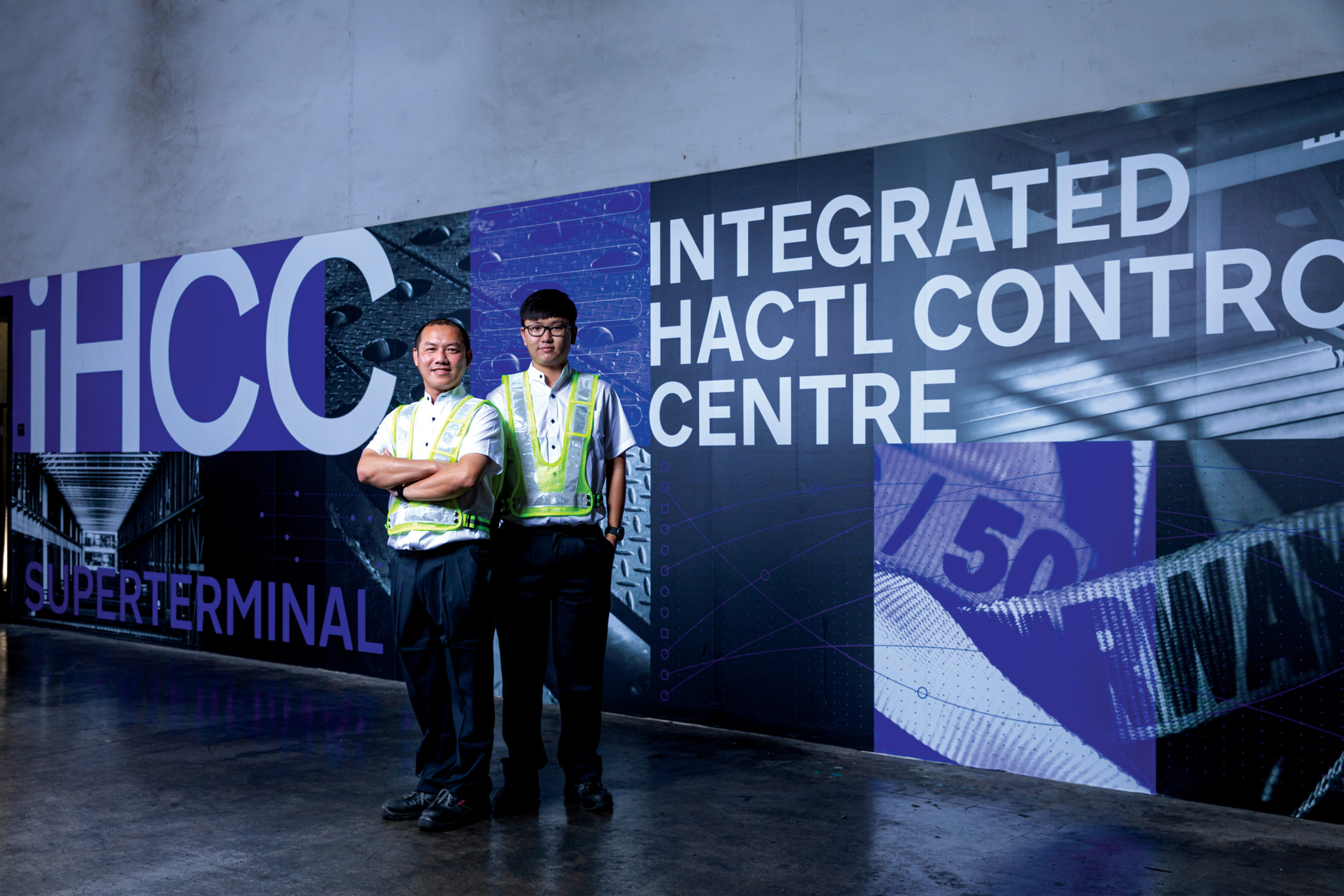
Prodigy mentor vs. slow-to-warm-up apprentice
Sifu Pang Kwok-fai (Fai) is outgoing and enthusiastic, while his apprentice Leung Wai-kit (Kit) is cautious and slower to befriend. They met in the Operations Department in 2019. “I was leading a team to the ramp that day, when someone suddenly came out of nowhere and said, ‘I’m your man, Fai!’” After this initial greeting, Kit did not know how to introduce himself, nor even begin a casual conversation with sifu and his colleagues. He stood there, waiting quietly for Fai to assign duties. “Why is this young man so shy?” Fai wondered.
A living dictionary
But, soon after he met Kit, Fai identified his apprentice’s strengths: “Kit doesn’t talk much when working, but he’s very serious about his job. When he encounters something he doesn’t understand, he’s not shy at all and he’ll keep on trying to get to the root of the matter.” Kit, who is a quiet observer and asks sensible questions, has met a fantastic mentor. Everyone in the team knows Fai is the terminal’s speaking dictionary. From everyday trivia to specialised air transport knowledge, Fai’s brain is like a huge database, always providing resources to solve problems. “Fai’s nickname is ‘The Prodigy’!” Kit reveals.
Take aircraft, for example: loading and unloading cargo varies greatly from model to model. In the wake of the pandemic, more 777Fs are now being handled at Hactl than the more familiar 747Fs. The team encounters operational difficulties from time to time, but Fai is very familiar with handling 777Fs and is always there to guide them. “There is no such thing as a problem for Fai on the ramp. He absorbs knowledge even better than young people, so always knows more than others,” says Kit admiringly.
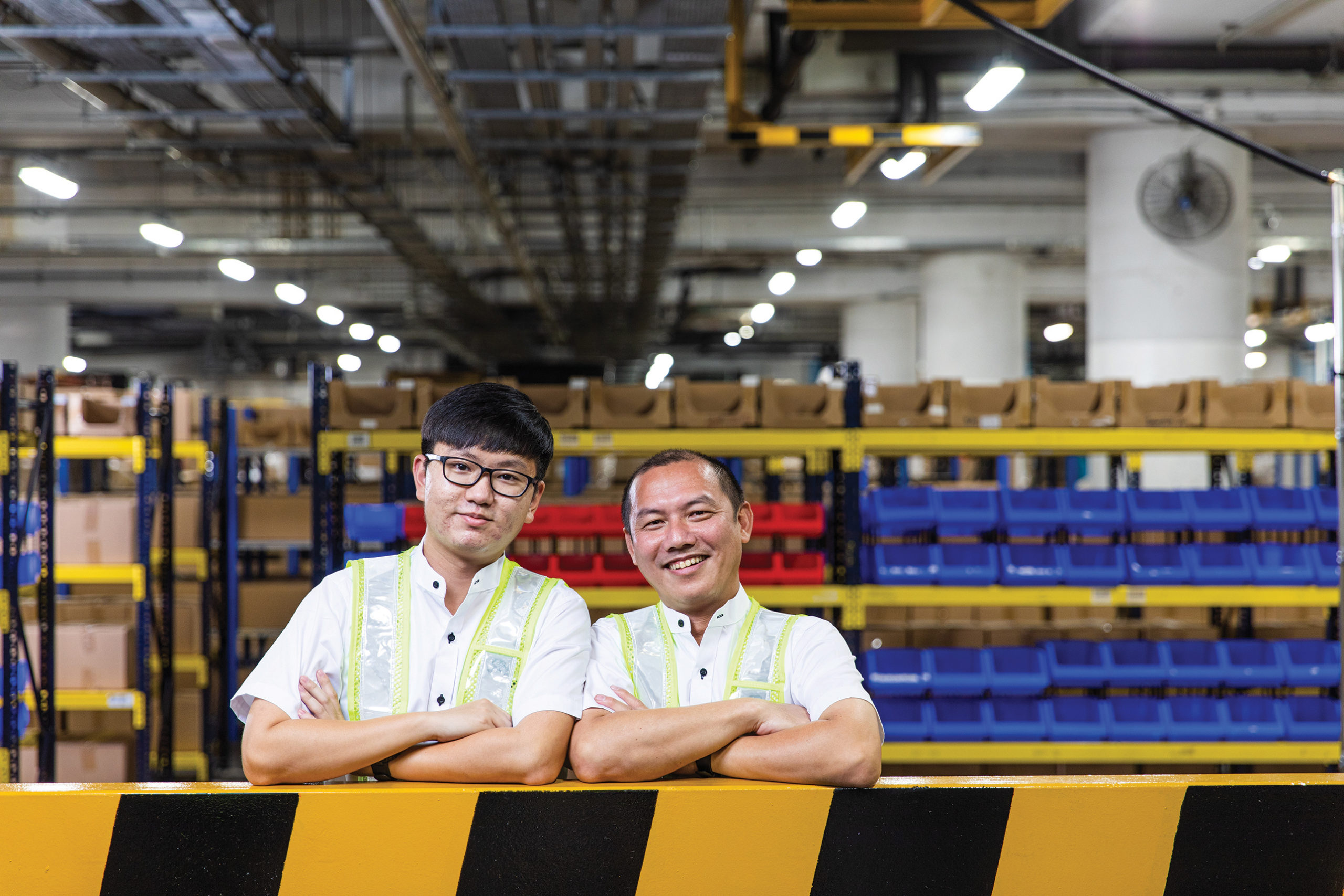
“Under the guidance of Fai, Kit learned to speak with confidence about work matters, and to simplify complex instructions so colleagues could accurately interpret them.”
Shy apprentice confronts management challenges
Kit’s hard work and conscientious character are acknowledged by everyone in the team, so he was quickly promoted after joining the Operations Department — but when Kit became an Assistant Supervisor and started to manage his subordinates, he faced a real challenge. “He was too nice and sometimes gave people the impression he’s not forceful and determined enough,” Fai recalls. Kit still remembers the first time he briefed a large group of colleagues on the day’s work: “I didn’t have enough experience, and my instructions were not clear. The team was not listening to me, and they started chatting and flipping through their duty lists. The atmosphere was terrible.”
When Fai saw this, he could not help but remind his team to behave: “Sir is speaking, be quiet!” After that, Kit learned that he needed to improve his communication skills and often asked Fai for advice. Under the guidance of Fai, Kit learned to speak with confidence about work matters, and to simplify complex instructions so colleagues could accurately interpret them.
With his hard work and the guidance of his sifu, Kit is no longer a shy and introverted freshman. He now works as a Supervisor, planning work schedules for even more colleagues — including Fai. Despite this change in their roles, the two still maintain a close relationship, supporting each other at work and meeting up for meals and movies in their spare time. For example, during the pandemic, there was a massive surge in e-commerce, and the extra workload at the terminal made it more difficult for Kit to arrange work schedules. But Fai was still on hand to assist: “If we suddenly had to handle a charter flight and needed extra manpower, sifu was always willing to help.” The generous Fai adds: “In fact, I would help any of my colleagues whenever necessary, not just Kit. We are all good buddies.” It’s likely that Kit is not the only one who has been influenced by Fai’ s dedication to his work.
Lee Wing-keung (Fei) , Hacis - Senior Supervisor
Lam Pui-wai (Wai), Hacis - Senior Supervisor
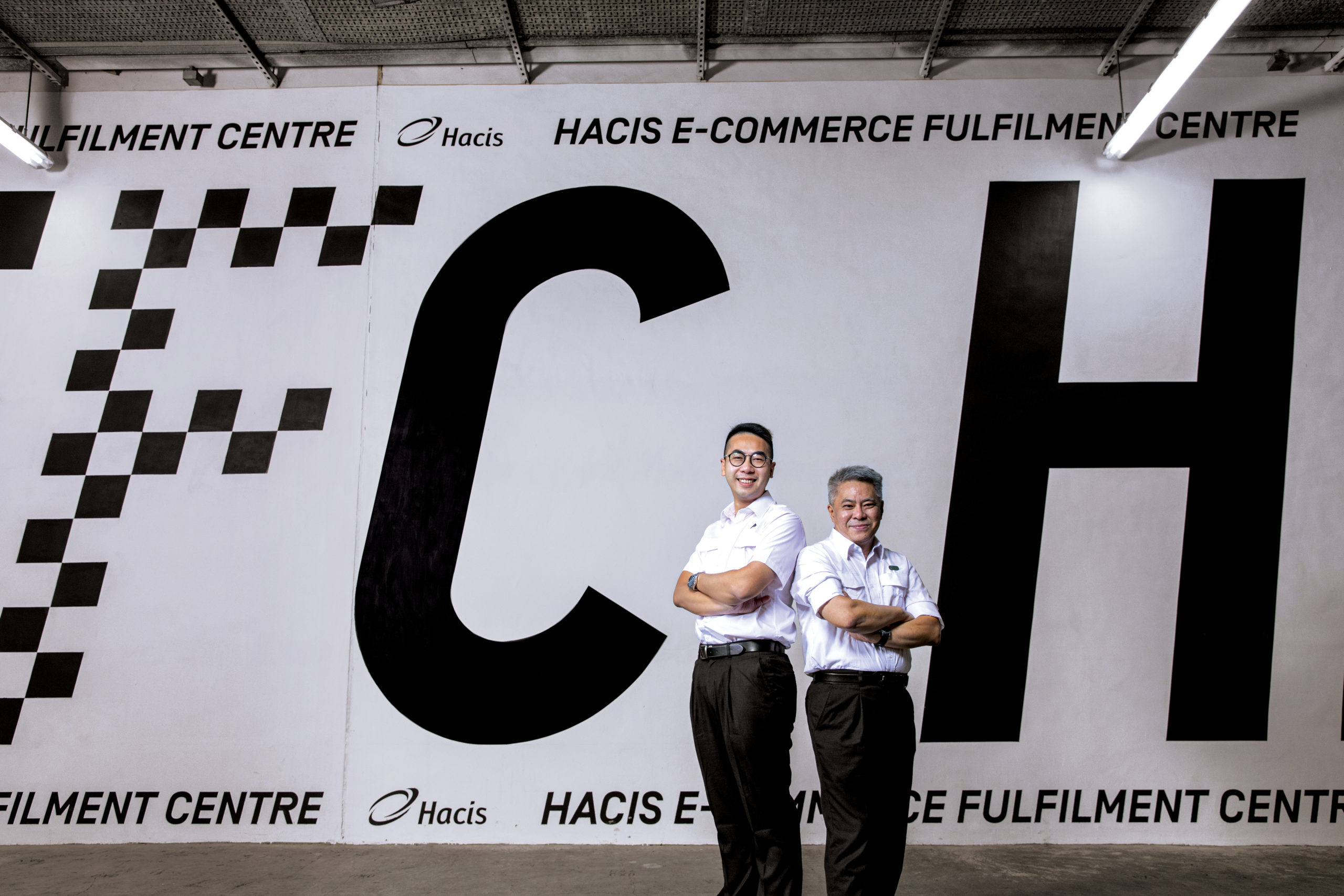
Stric teacher makes brilliant student
Fei is serious when on duty, and always keeps personal and work matters separate. “We always worried about failing to meet his requirements,” recalls Wai, his apprentice. Fei responds: “That’s part of my job.” The two work at Hactl’s value-added logistics subsidiary, Hong Kong Air Cargo Industry Services Limited (Hacis), and are experts in warehousing and logistics management. Let’s hear the story of Fei and his student Wai.
“He is not shy, nor is he afraid of hassles. He always explains information clearly to customers, supervisors and colleagues, and asks questions when he has concerns. What he delivers always surpasses the task I’ve assigned to him.”
A powerful shout
Wai first joined Hacis as Fei’s apprentice in 2005. Over the years that followed, what impressed him most was Fei’s care for people. Carelessness doesn’t only work against the interests of the company and its customers, but also endangers the team’s safety. Wai recalls a memorable incident, when Fei shouted at a colleague who was driving a forklift in the wrong way, telling him to immediately get off the vehicle. “The noisy warehouse suddenly went quiet, and everyone listened to Fei like students listening to a lecture on how to operate a forklift.”
Fei’s charisma as a sifu also comes from his impartiality and the fact that he doesn’t take things personally. “We know that Fei is serious,” continues Wai, “but he is not acting out of anger or trying to make things difficult for colleagues. We feel he truly values the well-being of the team and simply wants to enhance the level of professionalism in everyone.”
While Wai is highly respectful of his sifu, how does Fei – who has trained nearly a hundred apprentices over the years – feel about this apprentice? In fact, when Fei first met Wai, he says he could already see the potential in this young man, as working in the warehouse is all about good communication, he explains: “Wai’s strength is his ability to process information well; he picks up things quickly. He is not shy, nor is he afraid of hassles. He always explains information clearly to customers, supervisors and colleagues, and asks questions when he has concerns. What he delivers always surpasses the task I’ve assigned to him.”
Passing experience across generations
The admirable work ethic of Fei himself also comes from his own mentor back in the day, who could be described as Wai’s “sikung” (“mentor’s mentor” in Cantonese). “When I was young, I wore long hair, which made me look like ‘fei jai’ (“gangster” in Cantonese), and even in my personality I was like one! That’s why people always called me ‘Fei’. Shortly after joining Hactl, Fei got into an argument with a freight forwarder and was punched. He was furious, and wanted to hit back. “But my sifu came and stopped me. He told me: ‘If you fight back, you will not only be fired, but also get a criminal record. Your future will be totally ruined!’” With this sound guidance from his sifu, Fei learned to control his temper, take his work seriously, be patient with others, and never let his emotions get the better of him.
Under the influence of his own mentor, Fei has since set an example for many young apprentices like Wai to follow. Today, Wai holds the same rank as his mentor, and has followed in Fei’s footsteps – sharing his experience and professional attitude with new joiners. Perhaps the most valuable aspect of mentorship at Hactl and Hacis is the passing on of experience across the generations.

